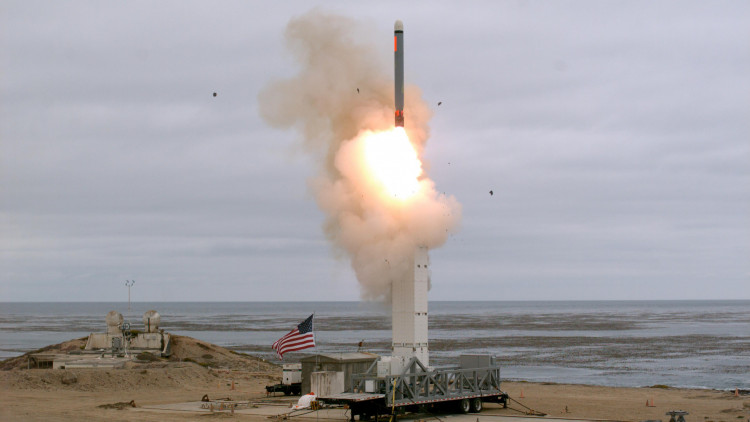On Wednesday the Russian military announced that the first test of a new Intercontinental Ballistic Missile (ICBM) had been successfully completed, a technology that Putin claims will have the Western countries "think twice" before pursuing any aggressive plans toward his country.
The introduction of the Sarmat ICBM arrives in the face of an escalating dispute between Russia and the West concerning Russia's military strikes in Ukraine, highlighting the Kremlin's focus on the nation's nuclear weapons.
The Sarmat was tested Wednesday from the Plesetsk launch complex in northern Russia, and its testing projectiles successfully hit simulated targets on the Kura firing range in the far eastern Kamchatka Peninsula, according to the Defense Ministry of Russia.
The launching, it added, was a complete success, demonstrating the weapon's capabilities "in all stages of its course."
According to Pentagon Press Secretary John Kirby, Russia had sent the U.S. an early warning of the launch in accordance with the New START nuclear weapons control accord.
"This type of testing is commonplace. It came as no surprise. The test did not pose a threat to the U.S. or its allies," Kirby said.
Putin praised the Sarmat test in a meeting with senior officials, saying that the weapon has no foreign counterparts and is effective at breaching any potential missile defense systems.
In the wake of recent Western sanctions banning high-tech shipments to Russia and explicitly targeting its weapons industry in retaliation to Russia's operations in Ukraine, Putin stressed that the ICBM is made entirely of Russian materials.
The Sarmat is a ballistic warhead that has been under preparation for some years as a replacement for the Soviet-made Voyevoda, which was the component of Moscow's nuclear deterrence and which the West code-named as Satan.
The ICBM, according to the ministry, can transport supersonic gliding motors as well as other varieties of weapons.
The Avangard hypersonic launcher, according to the Russian military, might be mounted to the new weapon.
The Avangard is able to travel 27 times faster than sound and make quick turns on its way to evade the opponent's missile defense system, according to the military.
In a statement on his messaging app platform, Dmitry Rogozin, the director of the Russian Roscosmos agency, which controls the ICBM facility manufacturing the Sarmat, hailed Wednesday's launch as "a gift to NATO."
Rogozin described the Sarmat as a "superweapon" that will be authorized by the government this fall after its evaluations are completed.






